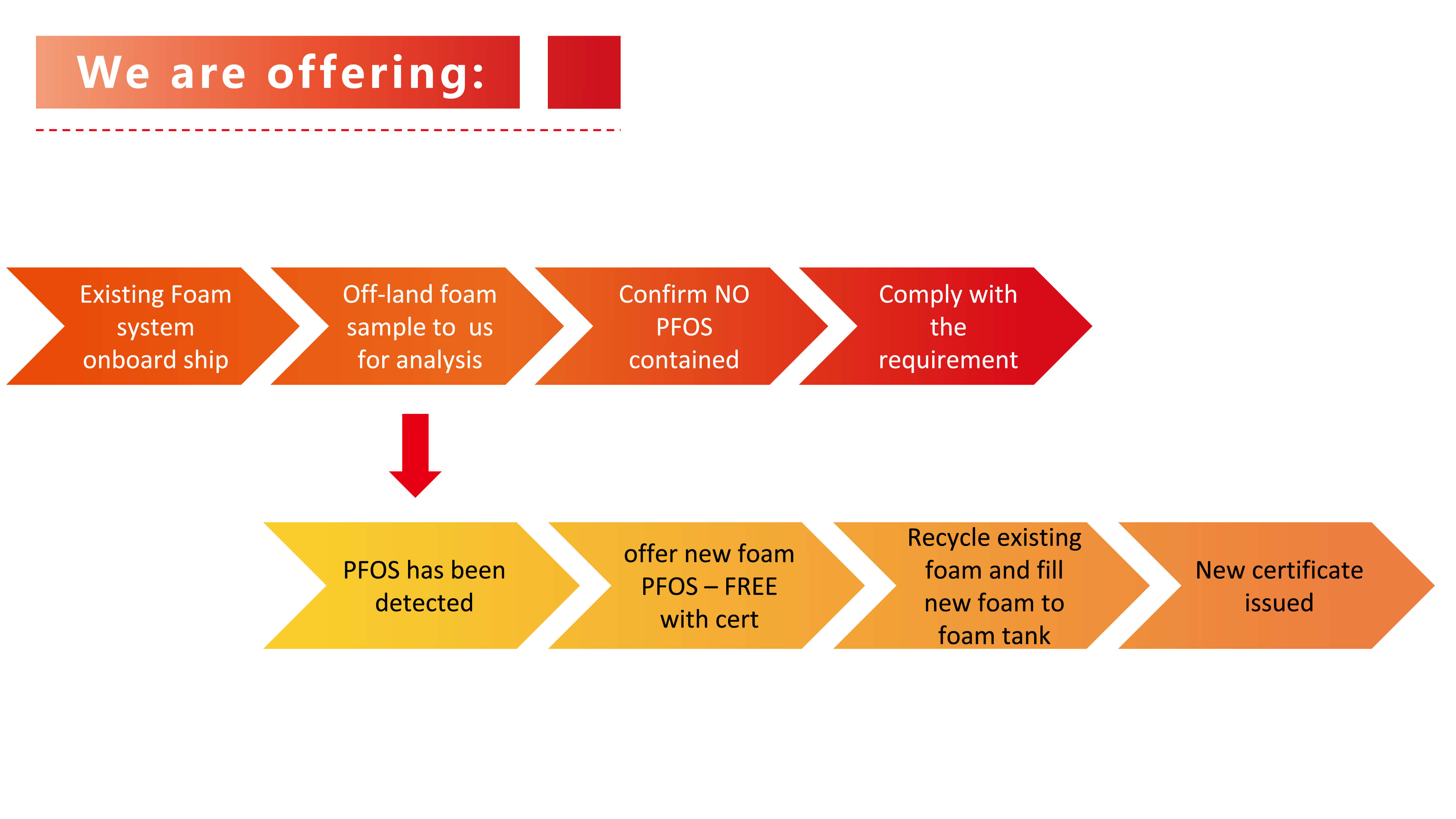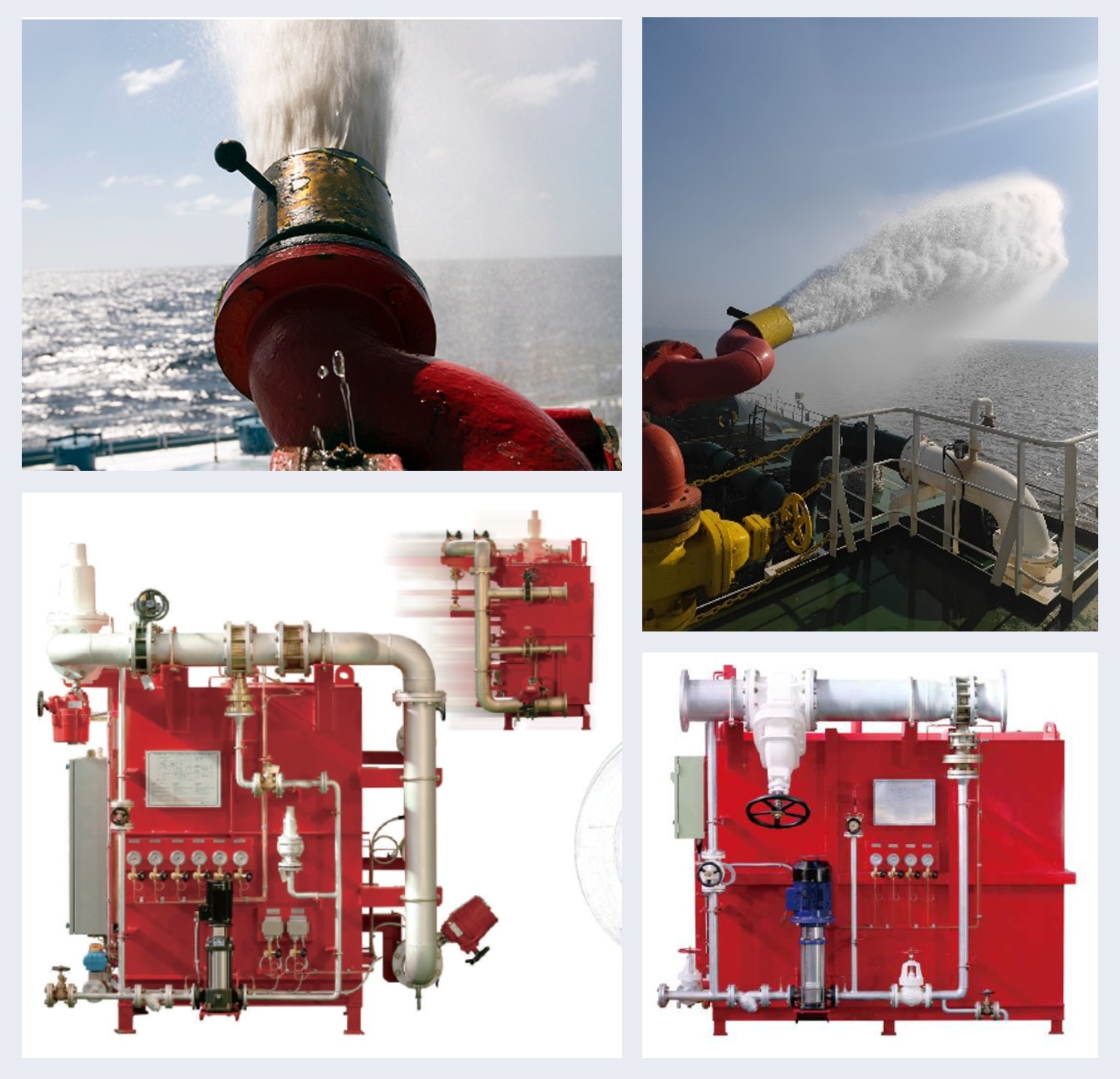Find RMS FSR to comply with the requirement
Email: fsr@rmsmarineservice.com
Sub-Committee on Ship Systems and Equipment (SSE 9), 27 February-3 March 2023
The IMO's Sub-Committee on Ship Systems and Equipment (SSE) has finalized prohibition of perfluoro-octane sulfonic acid (PFOS) from fire-fighting systems on board ships.
This prohibition will protect the crew against exposure to dangerous substances that are used in fire-fighting systems and will minimize the negative consequences on the environment.
The International Maritime Organization’s (IMO) sub-committee on ship systems and equipment (SSE) met for the 8th session from 28 February to 4 March. Amongst other decisions, the sub-committee finalised prohibition of perfluoro-octane sulphonic acid (PFOS) to be used or stored on board as part of ships’ fire-fighting systems.
It is important to recall that the use of this substance ashore has already been heavily restricted by the Stockholm convention.
| Resolution MSC.536(107) (Adopted on 8 June 2023), Amendments to the International Code of Safety, For high-speed craft, 1994 (1994 HSC Code) | Resolution MSC.537(107) (Adopted on 8 June 2023) Amendments to the International Code of Safety, |
7.9 Miscellaneous
The following new paragraph 7.9.4 is added after existing paragraph 7.9.3.5, together with the associated footnote:
"7.9.4 Fire-extinguishing media restrictions"
7.9.4.1 The following restrictions shall apply for the use, storage or disposal of perfluorooctane sulfonic acid (PFOS):
on craft constructed on or after 1 January 2026, use or storage of extinguishing media containing perfluorooctane sulfonic acid (PFOS) shall be prohibited;
craft constructed before 1 January 2026 shall comply with the requirements of 7.9.4.1.1 no later than the date of the first survey* on or after 1 January 2026; and
the substances prohibited by the requirements of 7.9.4.1.1 or 7.9.4.1.2 shall be delivered to appropriate shore-based reception facilities when removed from the craft.

PFOS is toxic to humans, and there is growing evidence that long-chain PFAS could cause liver malfunction, disruptive effects on the immune and endocrine system, adverse neurobehavioral effects, testicular and kidney cancer, and other adverse effects.
Due to its long-term persistent accumulation, humans, wildlife and the environment are continually exposed.
Studies have shown that, workers and people who live in in areas with high levels of PFOS in drinking water,
PFOS Can:
- Increase cholesterol,
- Cause pregnancy-induced hypertension,
- Increase the risk for thyroid disease,
- Decrease antibody response to vaccines,
- Decrease fertility,
- Cause small decreases in birth weight.
It should be pointed out that the United States Environmental Protection Agency (US EPA) has classified PFOS as having suggestive evidence of carcinogenic potential.
On ships, this chemical may be found in firefighting foam compounds. The IMO SSE 8, decided to prohibit the use of PFOS from new ships from 1 January 2026 and to eliminate the substance from existing ships no later than five years from the date of this requirement coming into force.
In the meantime, it was agreed that when substances containing PFOS are removed from the ship, they should be moved to appropriate reception facilities.


 Hotlines for RMS Group:
Hotlines for RMS Group:
Europe Customers
Tel:+86-21-20822809Mob:+86-13585671751
Asia Customers
Tel:+86-21-20822828Mob:+86-13816050054
China Customers
Tel:+86-21-20822914Mob:+86-15921108835
Korea: ACE-RMS Marine Service Co., Ltd.
Singapore: RMS Marine & Offshore Service (Singapore) Pte. Ltd.
Europe:RMS Marine Service B.V.
UAE : R M S Middle East Ship Services L.L.C
USA: RMS Marine Service US LLC customer@rmsmarineservice.com




